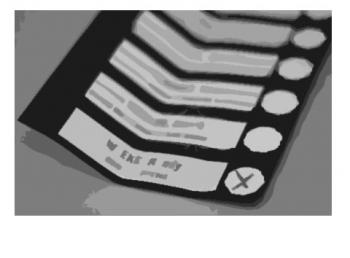For the second time in sixteen months, Quebecers will head to the polls and cast their ballots. Once again the Quebec voter, like all those who have voted before her/him, is faced with a daunting choice: do I vote for the change I wish to see, or do I vote to keep those who represent the policies I vehemently oppose out of office?
Granted, a voter scarcely finds a party that stands for all she believes in, hence the differing positions within a political party during a leadership race. Yet, there will almost always be a party that best represents a voter’s aspirations, with the voter having to compromise on other, less significant, positions.
Defenders of strategic voting will argue that it is necessary to keep the ‘other’ party out of power. They will argue that the policies of the other party are too dangerous to see the light of day, and that it is best is to coalesce to defeat the other party.
This argument has been raised in recent federal elections with calls by some for an NDP-Liberal-Green merger, to stop the vote splitting that has kept the Conservatives in power. The argument goes that Conservatives were only able to defeat the Liberals once they resolved the post-Mulroney Reform-Progressive Conservative split, and that those opposing the Conservatives should now do the same. If the parties won’t bring the vote together, then the voters should through strategic voting.
A drawback of this argument is the resulting limitation of choice and the stagnation of political discourse. Many NDP voters have diverging views from Liberal voters, and vice versa. Most would have to compromise too much of their values in voting for the other party. Even worse, the proliferation of strategic voting results in the parties who have historically formed government or opposition dominating the political discourse, despite the emergence of newer parties that better represent the values of many voters.
Many pundits were surprised by the ‘orange wave’ that swept through Quebec in the last election. The truth is that many voters had had their hearts set on the NDP years or even decades earlier, but had been voting Liberal in an attempt to keep the Conservatives out of power.
Once ‘le bon Jack’ inspired them with a better vision than the dominating discourse and the NDP rose enough in the polls that it was no longer ‘strategic’ to vote Liberal, fence-sitting NDP voters made the switch in droves. It took the vision and perseverance of a core set of NDP voters to keep the party in contention over the decades. Their choice to strategically vote years earlier would have resulted in the disappearance of the NDP from the political scene, and the limitation of choice and vision to voters.
It’s not that strategic voters aren’t onto something. Like most Canadians, they realize that majority governments are formed provincially and federally with less than 40 per cent of the popular vote, and so resort to strategic voting to address this problem. The remedy however lies in election reform, finding an alternative to the first-past-the-post system of selecting MPs, MPPs, and MNAs.
Additionally, the term ‘coalition government’ should cease to become an epithet in the Canadian political lexicon. Canadians should have the ability to vote for a party that best represents their ideas, and that party should then hold a proportional sway equivalent to its size if it is needed in the formation of a majority government.
Until electoral reform becomes a reality, Quebecers and all Canadians should vote for those that best represent their values and hopes. The rules and realities of politics should not cause us to settle. Let us dream, aspire and inspire.
Mohamed Shaheen is a microelectronics doctoral student at McGill University, and a Montreal-based community activist and photographer. You can find his blog at www.mohamedshaheen.com



